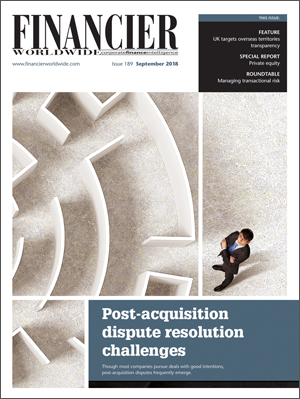Over the past decade, venture capital hotpots have become more diversified. These developments bring opportunities as well as challenges to investors. Countries that were seen as economically or politically unstable are now becoming more and more attractive to investors, ranging from Indonesia to Mexico and Nigeria. As a result, investors need to change their strategy and focus on a broader set of regions.
The epicentre of venture capital investments during recent decades has been Silicon Valley, where the majority of large deals and exits have taken place, respectively 25 percent and 15 percent of total venture capital investments in 2017 in the US. Since 2010, the market has shown more interest in other regions, but still, US deals in the first quarter of 2018 account for 60 percent of total global venture investments. However, Europe, China and India have significantly grown in importance, with the next wave of markets such as Indonesia and Brazil rapidly gathering momentum.
In Asia, China and India have shown substantial growth in venture capital activity. Paytm and OYO both raised large rounds, $2.2bn and $250m respectively, and unlike previous years, investors have shown interest in industries other than e-commerce, such as financial services. In China, the list of mega deals is impressive, ranging from Hive Box to WeWork China. A considerable amount of cash was deployed by government-related funds, as well as Temasek and Sequoia which increased their activity. Investments in these regions came primarily from local sources. More recently, investors have started to show significant interest in other Asian markets.
The South East Asian (SEA) region is on the rise. Investments in 2016 rose to almost $7bn, in comparison with $300m in 2012. Singapore receives close to half of total investments in SEA, Indonesia about 20 percent. Investors are optimistic about digital developments in Indonesia and favourable demographics. Furthermore, venture capitalists are confident about strong macroeconomic fundamentals in the country. Traveloka and Tokopedia are two of the most successful companies to have received substantial investments. The market is offering huge potential and room for growth as more people start using digital channels.
In Europe, although London played as the financial hub and European springboard to the US, the biggest tech unicorns in Europe were not in the UK. Examples are SuperCell in Finland, Skype in Denmark, Adyen in the Netherlands and Zalando in Berlin, to name a few. Across the board, Europe has developed positively with strong momentum in key hubs such as Amsterdam, Berlin, Dublin, London, Paris and Warsaw. The Netherlands has delivered five unicorn exits in the past three years, among them Takeaway.com, Adyen and Acerta Pharma. Warsaw is also attracting companies due to IT talent and favourable regulatory conditions. The diversification in hubs can mainly be attributed to a heavily digitalised society in which a company’s location does not negatively affect its access to potential investors. The cost of labour in San Francisco, New York and London has risen to the point that companies have started to consider new territories. In addition, the cost of living plays a large part in reaching talent, and relocation has never been easier because of globalisation and digitalisation.
With the rise of new hubs around the globe against a backdrop of economic developments, globalisation and digitalisation, venture capitalists require a different approach. Traditionally, investors were centred around San Francisco and Tel Aviv. Shifts in start-up activity should result in different sourcing strategies for investors. First of all, local presence cannot be underestimated, especially for smaller firms which do not have the brand to receive good quality inbound deals. Physical presence increases the visibility of a firm and enables it to gain local knowledge. Secondly, building an online brand and network increases the chances of finding the next big deal. Start-ups are not only interested in cash, but are also looking for a ‘thought-leading’ venture capitalist that can foster their growth by leveraging its network and expertise to accomplish their goals. Being present, online and offline, improves deal quality and increases diversification within funds’ portfolios.
A growing middle class of consumers and the forthcoming digitalisation of this consumer group will lead to a diversification in venture capital around the world. In the past decade, we have seen the first signs of growing hotspots in areas other than traditional ones. This will only increase over the coming years. These developments will help B2C models in emerging markets because of their need for large domestic markets. B2B players are no longer limited to a handful of hotspots in the US and Europe. Globalisation and digitalisation have had a serious impact on selecting location. The upside of being as close as possible to the ‘heat’ no longer outweighs the downsides of expensive labour, housing and office space. As long as there is access to talent, companies have a much wider range of locations to choose from compared to a decade ago. Therefore, sourcing for investors will never be the same.
Radboud Vlaar is a partner at Finch Capital Partners. He can be contacted by email: radboud@finchcapital.com.
© Financier Worldwide
BY
Radboud Vlaar
Finch Capital Partners


